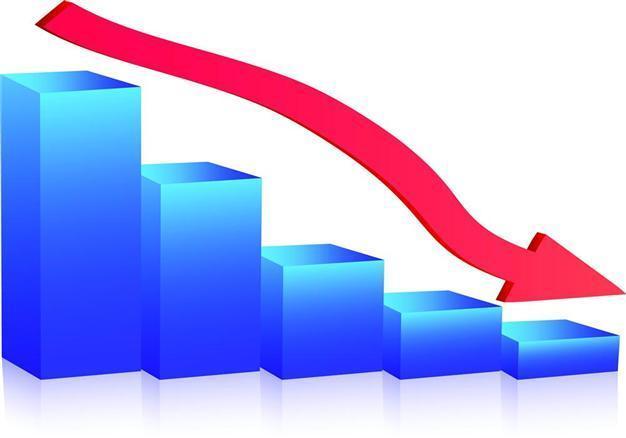Turkey posts sharp fall in growth rate for 2012
ISTANBUL - Hürriyet Daily News

Until the middle of the year, the government was expecting growth to mirror 2011 levels, but poorer-than-expected quarterly figures forced Cabinet ministers to downgrade their expectations. Hürriyet photo
The Turkish economy grew by only 2.2 percent last year, far behind the government’s initial expectations and the 2012 figure of 8.8 percent, as rising exports failed to cover falling domestic demand.According to data revealed by the Turkish Statistical Institute (TÜİK) yesterday, the Turkish economy grew by just 1.4 percent in the fourth quarter of 2012 and 2.2 percent over the entire year; initial market expectations had forecast growth rates of 2.6 and 2.3 percent, respectively. The growth gave Turkey a gross domestic product of 117.7 billion Turkish Liras ($64.8 billion).
The steep reduction in the growth rate mainly stemmed from low domestic demand as domestic consumption pulled the overall figure down by 0.6 points while net exports and state consumption and investment expenditures elevated the rate by 1.9 and 2.9 percent, respectively.
“Unfortunately, one side of the growth remained deficient,” Turkish Economy Minister Zafer Çağlayan said in a statement on the announcement of the long-awaited data.
“I believe both domestic demand and net exports should contribute [to growth]. One would wish that domestic demand would contribute to growth, even if just a pinch, for us to come over $800 billion. I wish we could generate more employment … Hopefully, we can realize these in 2013 and afterwards.”
TÜİK also announced yesterday that it had updated the already-impressive 2011 growth of 8.5 percent to 8.8 percent, according to a revised tourism income calculation method. Turkey grew by 9.2 in 2010.
Gov’t disappointed
Until the middle of the year, the government was expecting growth to mirror 2011 levels, but poorer-than-expected quarterly figures forced Cabinet ministers to downgrade their expectations.
The government’s unofficial target for growth was between 3 and 4 percent, while it also aimed for 3.2 percent in its Middle Term Program. The International Monetary Fund also set estimations of around 3 percent.
“We deserved more, it came as a bitter brake,” Çağlayan said in the statement in reference to an ongoing row with Turkish Central Bank Gov. Erdem Başçı over whether Turkey should step on the gas for faster growth as desired by the government or whether it should pursue policies to ensure more balanced development.
“I see my requests are not understood as these figures show that the brake has been pressed,” he said.
“We could easily grow by 4.2, 5.2 or 6.2 percent as we have the power. We’re a car that can drive 300 kilometers per hour,” Çağlayan said yesterday at a meeting of exporters.
‘Still better than EU’
The minister, however, also said Turkey was not displaying poor growth performance when compared to the troubles of European countries and the European Union in 2012.
Finance Minister Mehmet Şimşek echoed Çağlayan, saying the 2.2 percent figure was a “success” in comparison to the global economic slowdown, the deepening of the European crisis, rising geopolitical tensions in the region and high oil prices.
But Şimşek also said Turkey could witness a shrinkage if it did not boost exports. Meanwhile the main opposition slashed the government over slow growth, accusing its representatives for lacking unity and publicly criticizing each other. “Dealing with ‘gas and break,’ the government made the economy tumbled down over in 2012,” Faik Öztrak, the main opposition Republican People’s Party (CHP) vice president, who is charge of economy has said.
The opposition MP underlines this is the slowest growth of Turkish economy in three years. With this rate, Turkish has posted fifth fastest slowing growth among 150 developing economy, he said.The Turkish government has downgraded its 2013 growth target to 4 percent, signaling that the slowdown policy will continue throughout the year.
















